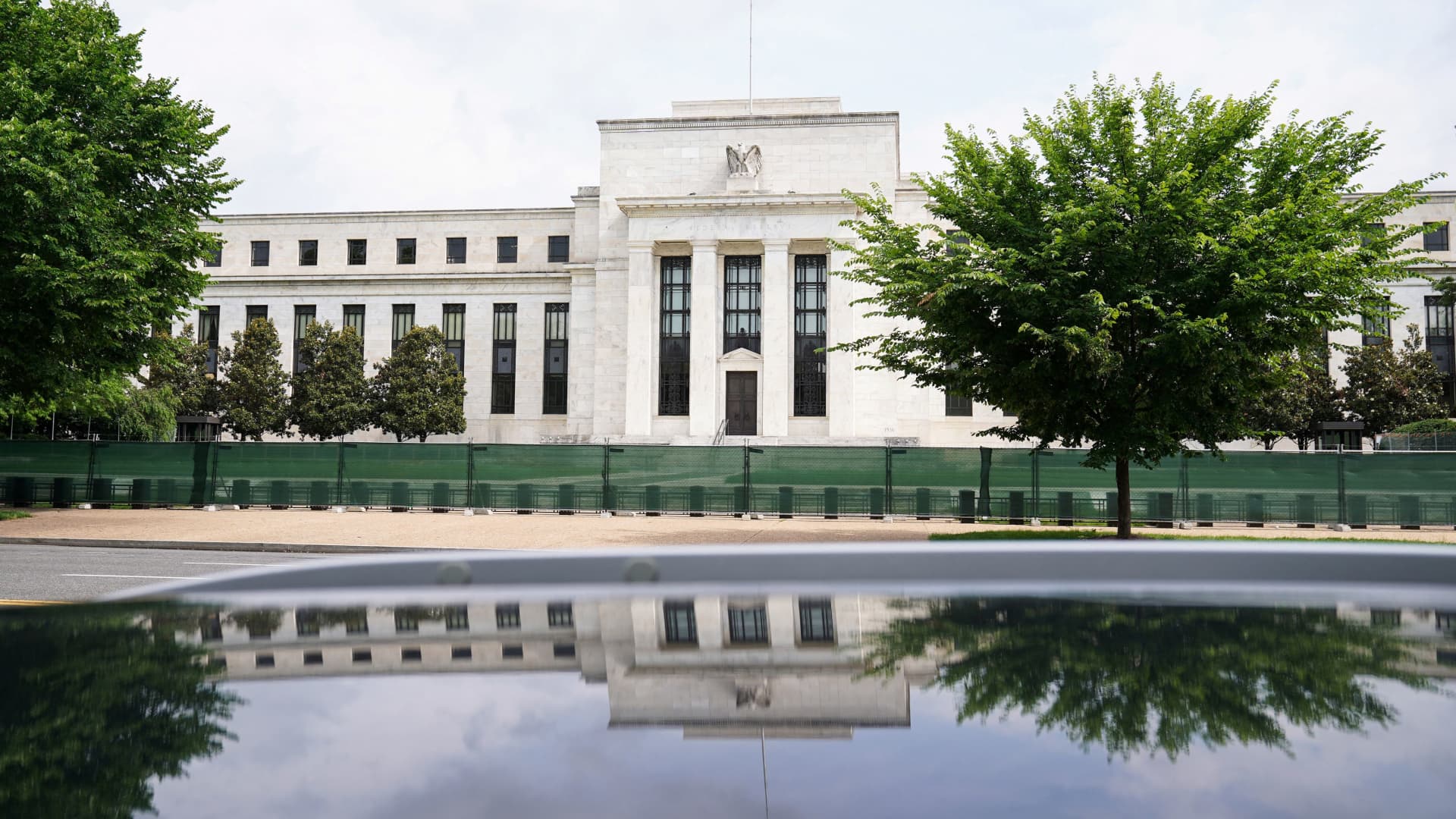Products You May Like
A Federal Reserve economic survey released Wednesday pointed to elevated recession fears along with a belief that soaring inflation will last at least through the end of the year.
The central bank’s “Beige Book,” a collection of views from across its 12 districts, noted the economy is growing at just a “modest” pace since the last report in mid-May.
Along with that, business contacts reported a general slowdown in demand, with five of the districts expressing “concerns over an increased risk of recession.”
“Similar to the previous report, the outlook for future economic growth was mostly negative among reporting Districts, with contacts noting expectations for further weakening of demand over the next six to twelve months,” the report stated.
On inflation, which is running at its fastest annual rate since November 1981, the report found “substantial price increases” across the country. Prices in areas such as lumber and steel had moderated, but there were “significant” increases in food, energy and other commodities.
Companies, however, reported that they are still able to pass along the price increases to customers, a further inflationary sign.
“While several Districts noted concerns about cooling future demand, on balance, pricing power was steady, and in some sectors, such as travel and hospitality, firms were successful in passing through sizable price increases to customers with little to no pushback,” the Beige Book stated. “Most contacts expect pricing pressures to persist at least through the end of the year.”
Labor markets remained tight, though that had alleviated somewhat as demand fell. Companies in four districts said they were considering or had given bonuses to offset rising prices.
In two districts, workers were looking for higher pay to compensate for inflation that reached 9.1% year-over-year in June.
Recession fears have grown recently as consumers battered by higher prices have slowed activity and domestic investment has cooled. The economy contracted 1.6% in the first quarter, and the Atlanta Fed has GDP on pace to decline 1.2% in the second quarter, meeting the rule-of-thumb recession definition.
Responding to higher costs across the board, the Fed has instituted a series of rate hikes aimed at taming inflation.
Following Wednesday’s consumer price index report that also showed inflation excluding food and energy rose at a brisk 5.9% pace, traders upped their bets on a more aggressive Fed, now assigning an 83% probability that the central bank will hike benchmark borrowing rates a full point at its meeting later in July, according to CME Group data.
Atlanta President Raphael Bostic said Wednesday afternoon that “everything is in play” regarding potential rate increases and said a 100 basis point, or full percentage point, increase could be on the table for the July 26-27 meeting, according to a Reuters account.

